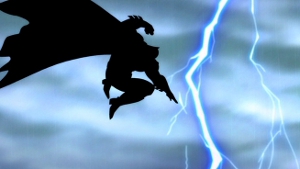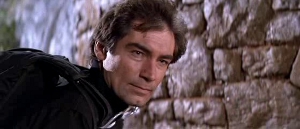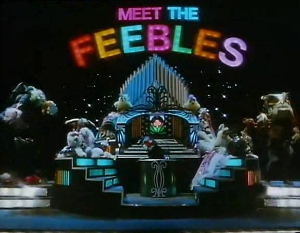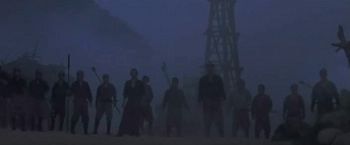Introduction: Comic Book History You Don’t Care About But Need to Know in Order to Understand What the Hell’s Going On (with apologies to Linkara).

Yes, friends, it’s time once again to examine the hilariously over-praised work of comic book writer Frank Miller, whose slow slide into insanity, inanity and irrelevance has provided amusement to comic book fans for the last fifteen years. Before that, though – and still to this day in some corners of Bat-fandom – Miller is/was considered a godhead, the wellspring from which all modern conceptions of Batman flow.
This is patent bullshit, ignoring at least fifteen years of hard work by other creatives. My favorite Batman editor, Dennis O’Neil, started out as a front-line writer in 1969, and made the conscious choice to move Bats away from the campiness of his by-then-canceled TV show. Together with writer/artist Neil Adams, inker Dick Giordano and editor Julius Schwartz, O’Neil returned The Bat to his roots in the pulpy Crime Dramas of the 30s and early 40s. The SF elements common in American comic’s Silver Age either shuffled off to the background…or were not-so-subtly twisted to reflect the changing (or “evolving”…and I’d dare say “improving”) tastes of the 70s. This culminated in Steve Englehart and Marshall Rogers 1977 run on Detective Comics, now sold under the title Batman: Strange Apparitions.
For my cash, that marks the first appearance of a truly “modern” Batman, complete with all the baggage and angst that define him still today. O’Neil sent the First Robin, Dick Grayson, off the college, leaving Bats and Alfred alone in their mansion, just the way filmmakers (apparently) like it. Englehart and Rogers introduced the first of many Bruce Wayne love interests, inevitably moving him to question his crusade and its end game…before just as inevitably departing his life, leaving him with even more to brood about. Put those elements together, shake ’em up, add villains to taste, and you’ve got every (good) live action Bat-film to date…and through Batman’s influence, most of the Superhero sub-genre.
Continue reading Batman: The Dark Knight Returns, Part 1 (2012)





 Except for “Choose Your Own Adventure” books, I can’t think of any trash culture reading materials that were more ubiquitous among my generation. The “Worlds of Power” books were designed by Seth “F.X. Nine” Godin and his shadowy legion of ghostwriters for one reason: to make money, obviously, but also I think they were a sincere attempt to get young gamers into reading. Honestly, at the time, it wasn’t a bad idea. Nowadays, no matter what the snobs say, video games have for the most part come into their own as a storytelling medium. It’s arguably futile to translate something like Final Fantasy VII or Silent Hill 3 into literature, since games like those are able to convey narratives on their own and those narratives are intertwined with, say, the dread that comes from exploring the “Otherworld” or the sense of determination the player might feel in facing Sephiroth after hours of seeing Cloud tortured in nearly every possible sense by the villain.
Except for “Choose Your Own Adventure” books, I can’t think of any trash culture reading materials that were more ubiquitous among my generation. The “Worlds of Power” books were designed by Seth “F.X. Nine” Godin and his shadowy legion of ghostwriters for one reason: to make money, obviously, but also I think they were a sincere attempt to get young gamers into reading. Honestly, at the time, it wasn’t a bad idea. Nowadays, no matter what the snobs say, video games have for the most part come into their own as a storytelling medium. It’s arguably futile to translate something like Final Fantasy VII or Silent Hill 3 into literature, since games like those are able to convey narratives on their own and those narratives are intertwined with, say, the dread that comes from exploring the “Otherworld” or the sense of determination the player might feel in facing Sephiroth after hours of seeing Cloud tortured in nearly every possible sense by the villain. 